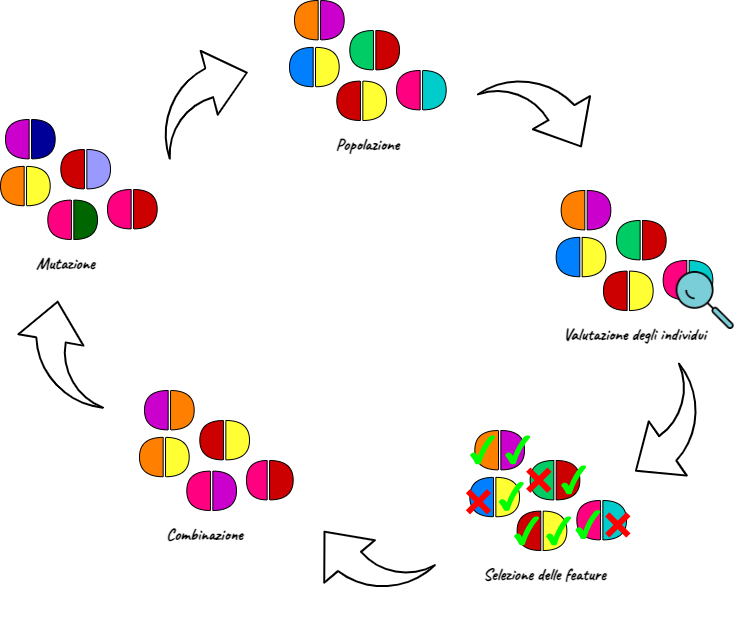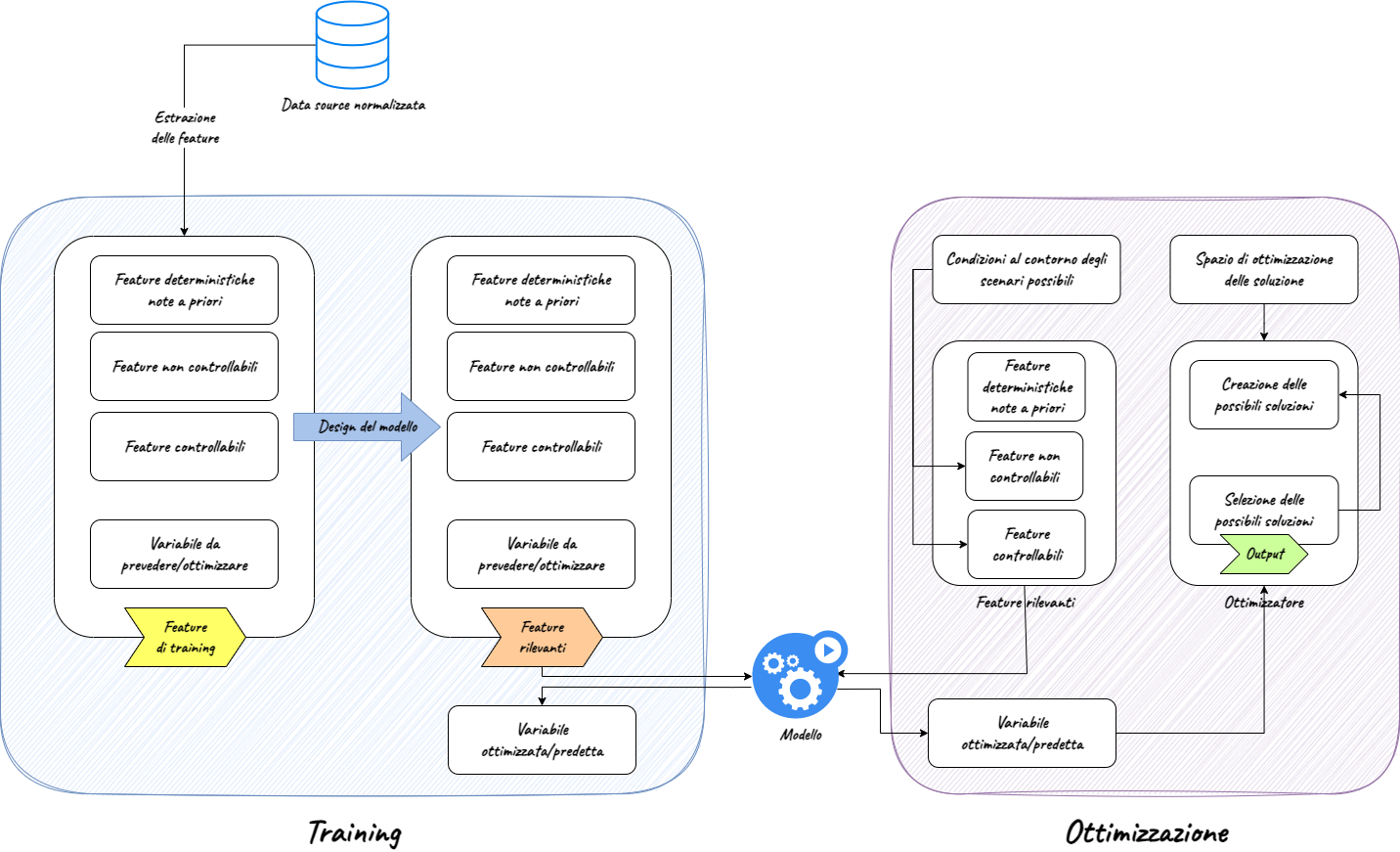With a view to a data-driven transformation, it is becoming increasingly necessary for a company to analyse a data history in order to make important decisions on future strategies and the next steps to implement them.
In any field of application, therefore, having algorithms in production to predict and optimise the problems posed by these challenges becomes strategic for a company: in this way, it is possible to realise the potential capital of its data and to control the impact and performance of its choices. In fact, these algorithms can help to improve the efficiency of production and organisational processes. In particular, the optimisation of production processes has become an increasingly challenging objective for companies in any sector.
Genetic algorithms, embedded in a suitable calculation and results architecture, help to achieve complex prediction and optimisation objectives and to manage a considerable number of possible scenarios, increasing their performance as they come into contact with the data to be learnt.























